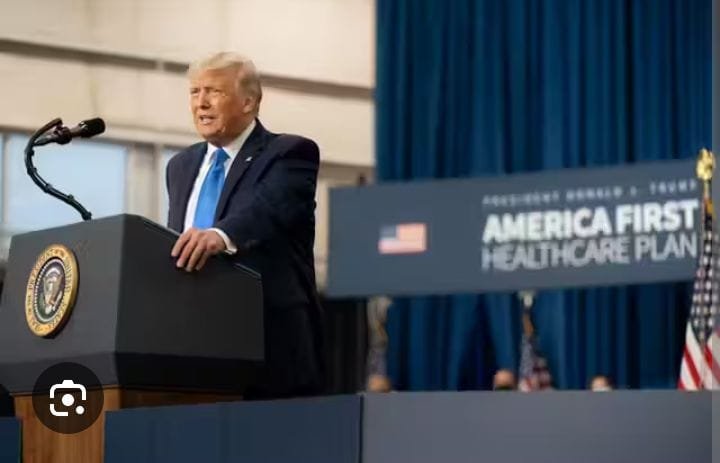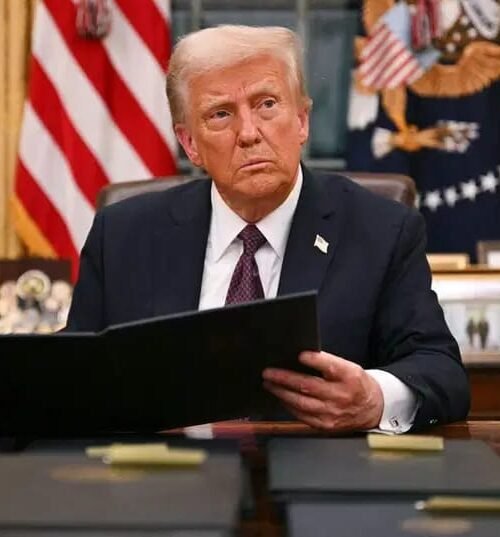The Economics of America’s Full Withdrawal from WHO: A New Era of Global Health Leadership and Economic Growth
The United States’ decision to withdraw from the World Health Organization (WHO) marks a significant shift in the global health landscape. As the largest contributor to the WHO, accounting for approximately 15% of the organization’s budget, the US withdrawal is expected to have far-reaching economic and health implications. According to the WHO’s 2020-2021 budget, the US contributed $893 million, with a significant portion of these funds supporting global health programs, research, and development.
Despite the potential challenges, the US withdrawal from the WHO also presents opportunities for America to reassess its global health priorities, optimize its investments, and drive innovation in the healthcare sector. The US biopharmaceutical industry, for example, is a significant driver of economic growth, investing over $79 billion in research and development in 2020 and supporting over 4.7 million jobs. By redirecting its resources and prioritizing its own healthcare needs, the US can emerge stronger, more resilient, and better equipped to address the complex health challenges of the 21st century.
The US withdrawal from the WHO presents an opportunity for America to drive innovation in the healthcare sector. By redirecting its resources and prioritizing domestic healthcare needs, the US can accelerate the development of new treatments, vaccines, and diagnostic tools. According to a report by the Pharmaceutical Research and Manufacturers of America, the US biopharmaceutical industry invested over $79 billion in research and development in 2020, supporting over 4.7 million jobs and generating over $1.3 trillion in economic output.
The US is already a global leader in healthcare innovation, with many of the world’s top pharmaceutical and biotechnology companies based in the country. According to a report by the US Chamber of Commerce, the US healthcare sector accounted for over 17% of the country’s GDP in 2020, with the biopharmaceutical industry contributing significantly to this growth. By driving innovation in the healthcare sector, the US can further solidify its position as a global leader in this field.
One area where the US can drive innovation is in the development of new vaccines and treatments for infectious diseases. According to the World Health Organization, infectious diseases such as tuberculosis, malaria, and HIV/AIDS account for over 10 million deaths worldwide each year. By investing in research and development, the US can help to address these global health challenges and save millions of lives. According to a report by the National Institutes of Health, every dollar invested in research and development generates a return of over $2 in economic growth.
In addition to driving innovation in the healthcare sector, the US withdrawal from the WHO can also create opportunities for American companies to develop new technologies and solutions for global health challenges. According to a report by the McKinsey Global Institute, the global healthcare technology market is expected to grow to over $500 billion by 2025, with opportunities for companies to develop new solutions for telemedicine, health analytics, and personalized medicine. By driving innovation in the healthcare sector, the US can help to address global health challenges while also creating new economic opportunities for American companies.
The US withdrawal from the WHO presents an opportunity for America to forge new partnerships with like-minded countries and organizations. By collaborating with other nations, the US can promote global health security, drive innovation, and advance shared health priorities. According to a report by the Centers for Disease Control and Prevention (CDC), the US has partnered with over 60 countries to strengthen global health security and prevent the spread of infectious diseases.
One potential area for new partnerships is in the development of global health infrastructure. According to the World Bank, investing in global health infrastructure can generate significant economic returns, with every dollar invested generating an estimated $3 in economic growth. The US can partner with other nations to invest in global health infrastructure, including the development of new hospitals, clinics, and laboratories.
The US can also forge new partnerships with the private sector to drive innovation and advance global health priorities. According to a report by the World Economic Forum, the private sector has invested over $100 billion in global health initiatives since 2010. By partnering with the private sector, the US can leverage new technologies, solutions, and funding to address global health challenges.
In addition to partnering with other nations and the private sector, the US can also forge new partnerships with non-governmental organizations (NGOs) and civil society groups. According to a report by the Bill and Melinda Gates Foundation, NGOs and civil society groups have played a critical role in advancing global health priorities, including the fight against HIV/AIDS, tuberculosis, and malaria. By partnering with NGOs and civil society groups, the US can leverage their expertise, resources, and networks to drive progress on global health challenges.
The US withdrawal from the WHO presents a unique opportunity for America to reassess its global health priorities, drive innovation, and forge new partnerships. By redirecting its resources and prioritizing domestic healthcare needs, the US can accelerate the development of new treatments, vaccines, and diagnostic tools, generating significant economic returns. According to a report by the Pharmaceutical Research and Manufacturers of America, every dollar invested in research and development generates a return of over $2 in economic growth.

In conclusion, the US withdrawal from the WHO is a strategic move that can drive economic growth, innovation, and global health progress. With the US biopharmaceutical industry investing over $79 billion in research and development in 2020, and the global healthcare market projected to reach $11.9 trillion by 2025, the opportunities for growth and innovation are vast. By seizing these opportunities, the US can emerge stronger, more resilient, and better equipped to address the complex health challenges of the 21st century.
Dr Chukwuemeka Ifegwu Eke writes from the University of Abuja Nigeria







